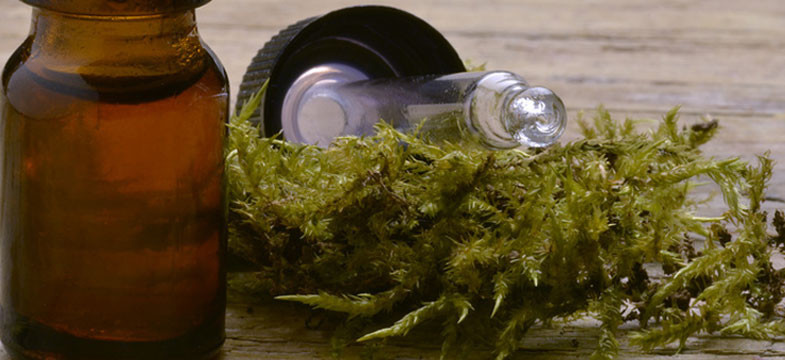Vitamin B12 Liquid: Drops and Sprays
When it comes to vitamin B12 supplements, liquid B12 in the form of drops and sprays is becoming an increasingly popular option. So what advantages does this form really offer?
First of all, vitamin B12 drops and sprays contain the vitamin in a dissolved form. Since B12 is a water-soluble vitamins, this application is actually very logical and offers a number of advantages. The most prominent of these is that liquid vitamin B12 supplements release the active ingredient immediately, which is advantageous over other forms such as pills that must first be dissolved in the stomach. With drops and sprays, the B12 content can be easily absorbed through the oral mucosa, which can be beneficial for people with gastro-intestinal absorption problems.
Vitamin B12 Drops and Spray vs Vitamin B12 Pills
Vitamin B12 drops and sprays often have a better composition than vitamin B12 pills. This is because some of the additives found in tablets, such as magnesium stearate, are suspected to negatively impact the absorption of the vitamin. These additives are not required in drops and sprays, as the body can absorb the vitamin B12 directly.
The simplicity and usability of drops and sprays demonstrates a second advantage: people who have difficulties swallowing pills or capsules can opt for vitamin B12 liquid. This form of supplement is therefore undoubtedly the best choice for children and the elderly.
Vitamin B12 sprays have a further advantage over drops in regards to dosage control, as a shot of spray is often easier to administer correctly than a drop from a pipette.
The Effects of Vitamin B12 Drops and Sprays
Using a supplement that contains directly available vitamin B12 makes a lot of sense, since the vitamin can be absorbed through the oral mucosa – which is known as sublingual absorption. Here, the intake of vitamin B12 begins immediately.
The next point of absorption is in the small intestine where there is a risk that free vitamin B12 can be destroyed by gastric fluids. Fortunately, current studies show that absorption via sublingual supplements is just as effective as that via tablets or capsules, meaning that this risk can be bypassed or even nullified by extra oral absorption (2, 3).
Absorption through the oral mucosa is therefore very advantageous in cases where intake through the intestine is precarious or impaired.
Advantages of Liquid Vitamin B12
The following is a summary of the key advantages of vitamin B12 sprays and drops:
- Direct availability of vitamin B12
- Immediate absorption in the mouth
- Easiest form to use
- Less additives contained than in pills
- Intestinal absorption can be avoided to an extent
Disadvantages of Liquid Vitamin B12
The only drawback of vitamin B12 drops and sprays is their relatively shorter shelf life; tablets can be stored over a very long period of time. Liquid vitamin B12 is somewhat more sensitive to light and should always be used within its shelf life, in order to ensure its full effect. However, when used regularly this is of little concern, since the shelf life is almost never reached.
Active Ingredients in Drops and Sprays
As with all B12 supplements, drops and sprays are available with various different vitamin B12 active ingredients. Here is an overview of the forms available.
Form | Natural Form | Usage | Notes |
Yes | Bioactive B12/B12 coenzyme: can be used directly by the body | Highly recommended, suitable for all uses | |
Yes | Bioactive B12/B12 coenzyme: can be used directly by the body | Highly recommended | |
Yes | Naturally occurring form found in foods, must be broken down first by the body into a coenzyme form | Recommended, good sustained release, supports detoxification of cyanide and nitrous oxide radicals | |
No | Artificial form which almost never occurs in nature. Must first be broken down by the body. Poorest availability and long-term effect of all forms | Releases small amounts of cyanide, so not suitable for smokers or people wishing to detox. Despite its disadvantages, has a good and proven effectiveness against B12 deficiency |
Dosages
The intake of vitamin B12 orally corresponds roughly to passive diffusion in the intestine. That means that around 1-2% of the dose is absorbed through the oral mucosa. In addition to this, there is an intake of around 1.5 µg in the small intestine via intrinsic factor.
Supplements should therefore contain around 300-500 µg of vitamin B12, in order to cover the daily requirements and provide a good buffer.
More general information on dosages can be found in our article: Vitamin B12 Dosages
Vegan Vitamin B12 Drops and Sprays
Since almost no non-vegan additives – like gelatine and stearate – are used in B12 drops and sprays, these supplements are almost always vegan. Glycerin, which is occasionally used can be made from animal products, but is far more likely to be extracted from coconut oil or produced synthetically. Readers who want to make sure of this should check the packaging for ‘vegetable glycerin’.
Additives in Liquid Vitamin B12 Supplements
In liquid supplements, the vitamin B12 cannot be simply dissolved in water, as the shelf life would be much too short. All vitamin B12 drops and sprays therefore also contain additives. Here is a short overview of the main substances used. Each substance is marked according to its risks factor: green is low risk, yellow medium risk and red high risk.
Additive | Notes |
Glycerin (E 422) | Present in all natural oils and fats. Considered harmless. Approved for organic products. Can be of animal origin, but in practice almost always produced synthetically or from vegetable fats |
Potassium sorbate (E 202) | Preservative, which is today synthetically produced, can be completely broken down by the body. Considered harmless |
Sorbic acid (E 200) | See E 202 |
Propylene glycol (E 1520) | Used as an excipient for flavours, not fully researched yet, considered harmless at present |
Sorbitol (E 420) | Naturally occurring sugar. Considered harmless |
Propyl-p-Hydroxybenzoate (E 216) | Synthetic preservative, excreted through the kidney, can cause pseudo-allergies, particularly causing possible respiratory problems for asthma sufferers, negative effects in animal testing, poisonous to cats |
Methyl-p-Hydroxybenzoate (E 218) | See E 216 |
Sodium methyl-p-hydroxybenzoate (E 219) | See E 216 |
Sodium hydrogen phosphate (E 339) | Synthetic preservative, contains phosphorus, consumer protection advises against regular consumption |
Mannitol | Can act as a laxative, possible to genetically engineer, consumer protection advises against regular consumption |
Sources
- 1 Sharabi, A., Cohen, E., Sulkes, J. and Garty, M. (2003), Replacement therapy for vitamin B12 deficiency: comparison between the sublingual and oral route. British Journal of Clinical Pharmacology, 56: 635–638. doi: 10.1046/j.1365-2125.2003.01907.x
- 2 Yuka Yazaki, Gigi Chow, and Mark Mattie. „A Single-Center, Double-Blinded, Randomized Controlled Study to Evaluate the Relative Efficacy of Sublingual and Oral Vitamin B-Complex Administration in Reducing Total Serum Homocysteine Levels“ The Journal of Alternative and Complementary Medicine. November 2006, 12(9): 881-885. doi:10.1089/acm.2006.12.881.
- 3 Georges Delpre, Pinhas Stark, Yaron Niv, Sublingual therapy for cobalamin deficiency as an alternative to oral and parenteral cobalamin supplementation, The Lancet, Volume 354, Issue 9180, 28 August 1999, Pages 740-741, ISSN 0140-6736, http://dx.doi.org/10.1016/S0140-6736(99)02479-4.


